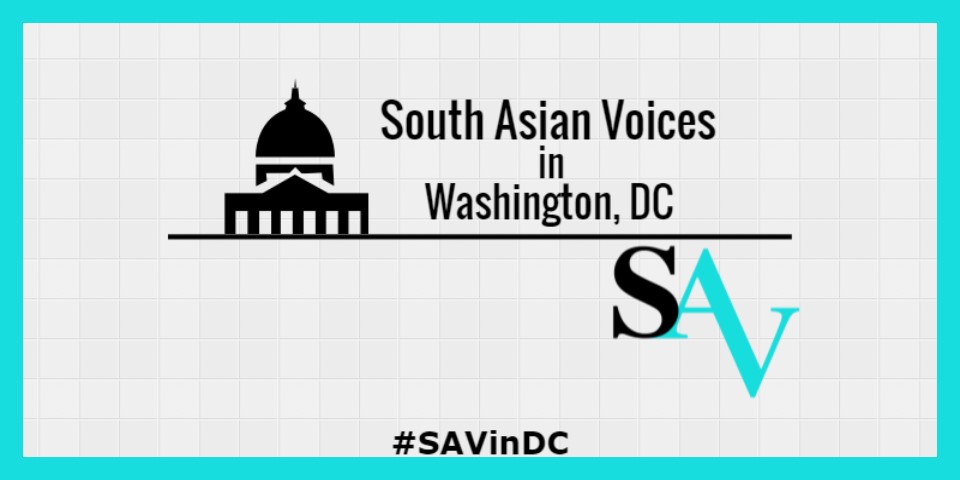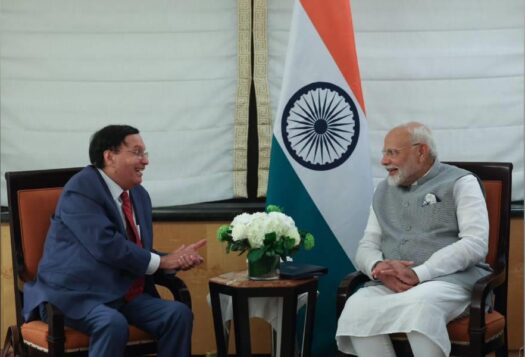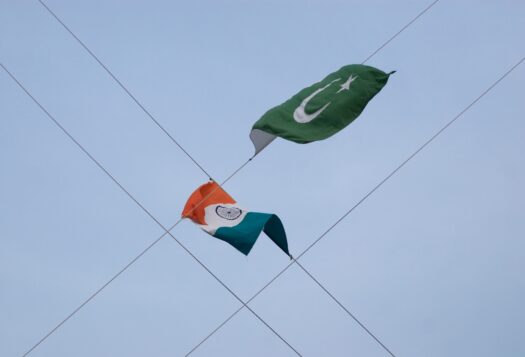
The Timbie Forum for Arms Control and International Security, formerly known as Generation Prague, hosts an annual round-up of speakers, panels, and presentations designed to engage the next generation in the world of arms control and nonproliferation and encourage new ideas for reducing nuclear weapons around the world.
Undersecretary of State for Arms Control and International Security Rose Gottemoeller opened the Forum. In between panel sessions, I interviewed the Undersecretary and she had something to say to South Asian Voices contributors, and Visiting Fellows associated with the Stimson Center South Asia Program:

Huzzah for emerging South Asian analysis: keep up the innovative problem solving. Secretary Kerry’s opening remarks were given by Undersecretary Gottemoeller due to a technical malfunction but the remarks were later uploaded to social media:
The Timbie Forum featured dialogue on nuclear issues through a range of lenses, from film and mainstream media to history and government. As someone who has attended several fora targeted at young people, this was one of the most engaging in terms of discussing new media and technology and potential global impact. Here are some of the highlights from different panels:
Perceptions of WMD in the Media

Panelist Dan Zak, a journalist for The Washington Post, suggests that one of the reasons the public struggles to engage in nuclear policy discussion is its abstract and highly technical nature:
Dan just had a sweet new book come out on rebellious nuclear activism: Almighty: Courage, Resistance, and Existential Peril in the Nuclear Age.
During a Q/A session, an audience member asked the following question live tweeted to #TimbieForum:
"Nuclear security has no @BillNye or @neiltyson to popularize it like other sciences. How do we engage young people like that?" #TimbieForum
— Meaghan Webster (@meaghanwebster) July 14, 2016
Engaging young people? Panelist Kelsey Davenport of the Arms Control Association directs us towards late night television!
Jon Oliver breaks down “the threat of nuclear annihilation”:
Panelist Smriti Keshari discussed her new movie “The Bomb”—based on Eric Schlosser’s recent book Command & Control: Nuclear Weapons, the Damascus Accident, and the Illusion of Safety. The movie itself is shown in a 360* experience with a live score performed in the center of the audience.
Nuclear Triad
The Nuclear Triad panel started off with Dr. Alex Wellerstein of the Stevens Institute of Technology giving a quick historical run-down of the nuclear triad and the rhetoric of how the phrase emerged. Hats off to Dr. Wellerstein, because I have not been so personally engaged in a lecture in years, and his charm, charisma, and ease speaking to a large audience was uniquely captivating.
Two of the more interesting quotes from Dr. Wellerstein’s talk, which he later expanded on in his blog here:
“[Google Ngrams] is a useful way to talk about where terms come from. It really starts up the mid-1970s and peaks in the mid-1980s…but you get the actual nuclear triad in the 1960s. [Thus] the invocation of the “triad” as a unitary strategic concept seems to have come about when people started to wonder whether we actually needed three major delivery systems for strategic weapons…The triad does not capture the Cold War deterrent and it cannot capture the deterrent today.”
Being able to attend the Timbie Forum (and getting one full minute to talk to the Undersecretary!) was one of the most fulfilling experiences during my time working as a researcher for the South Asia Program at the Stimson Center. The forum truly accomplished its goal of cultivating the next generation to work on nuclear issues, inviting them to engage in the discourse through a wide range of media, from the arts and journalism, to academia and government. South Asian Voices too serves as such a forum for emerging analysts from the subcontinent, to engage in nuclear and other strategic issues in this way.
—Richa Bhatia, Research Intern, The Stimson Center South Asia Program
P.S. Have you seen Dr. Alex Wellerstein’s nuke map simulation?! Check it out here–now available in 3D.


